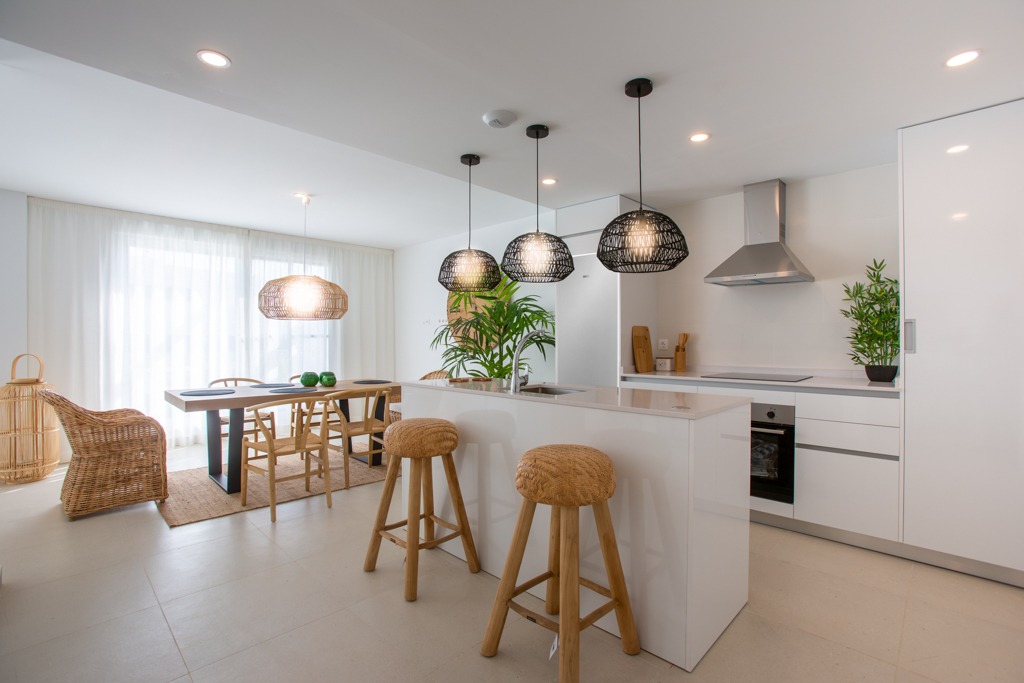Fractional ownership vs timeshare
Timeshares have been around for a long time. Its gradual decline over the years lead way to fractional ownership, a new type of flexible shared ownership which seems to offer the best of both worlds.
Fractional ownership has been gaining popularity in Spain for one reason: buyers become owners of a property in a flexible way, by acquiring shares or fractions through an L.L.C.
Although timeshare and fractional ownership seem to refer to the same concept, there is a radical difference between the two, and it mainly has to do with the type of rights they bring for each buyer. We explain it all below.
What is a timeshare?
Timeshares became popular in Spain in the 80s and 90s. The model consists of a legal owner (may it be a physical person, a resort, or hotel chain) who sells the use of his or her home in Spain to a group of buyers after obtaining a license to use it for leisure purposes, and buyers acquiring the right to use it.
According to El Economista, Spain is the “European country with the highest number of timeshare users, according to the National Association of Timeshare Companies (ANETC-RDO Spain); we are also the territory with the most timeshare complexes”.

Timeshare has gained a bad reputation, however. According to judicaregroup.com, the problem seems to lie mainly within the way it has been sold over the years. The main reason why the timeshare boom suffered a decline for some years was because of the difficulty for buyers to end their contracts. News quickly spread and many people started to view the model as a slight scam.
Another problem is Spain was the name it was referred to as, which was ‘multi property’ (multipropiedad). The fact it referred to the concept of property, when in practice no right of possession was acquired over it, but only over its use, made the model sometimes seem misleading.
In 1999, Law 42/1998, of December 15, 1998, became effective, which states that it is more appropriate to speak of rights to use real estate in turn, and that the word ‘multi property’ may lead to confusion.
Types of shared ownership
Shared ownership usually involves no more than two owners. In contrast, co-ownership, also known as “tenancy in common”, establishes multiple owners who decide how they want to share the property, including the acquisition of shares of the property in the case of fractional ownership.

The most basic type of shared ownership is one in which several people inherit property. They become owners of the property for a certain period of time, and the property becomes undivided. Even so, one of the owners can acquire the other inherited part from the other owners under mutual agreement.
Fractional ownership is a much more flexible type of co-ownership. Several people can own the property through shares or fractions of the property, usually around 8, that they buy through an L.L.C. or limited liability company. This company makes it much easier to buy, exchange or sell fractions. The company that creates and manages the L.L.C. is usually in charge of finding the property, gathering the group of buyers and acquiring it through the company.
Differences between fractional ownership and timeshare
Fractional ownership is a type of shared ownership or co-ownership. There are several owners who share a common property in the form of shares of the property. The rights and obligations are regulated by law, more specifically by the Civil Code.
Time-sharing is a different type of purchase. The fundamental difference between fractional ownership and timeshare is that with the latest buyers do not own the property: they buy the right to use the property for a certain period of time per year. Other fundamental differences between timeshare and fractional or shared ownership are based on the following:
- Permanence: Timesharing contracts are usually permanent or long-lasting, which ensures stability to the rest of the owners. In the case of shared ownership we refer to a temporary framework, and shareholders can sell their shares after a minimum latency period of usually 12 months.
- Voluntary character: Sometimes shared ownership may be due to situations beyond the control of the persons concerned, for example a family inheritance or the purchase of a piece of land under governance laws.
- Divisibility: In shared ownership, the property cannot be divided, i.e., each co-owner has a series of rights over it, but not over the whole entity.
In the case of timesharing, users do not own the property, but only the right to use it. The rightful owner of the property sells the right to use it to the buyers. Use periods may not be extended for less than 3 years or for more than 50 years.
- Expenses: In the case of timeshares, the legal owner of the property must have a tourism license, a certificate of occupancy, civil liability insurance, supply management, etc. Buyers acquire the right to use the property and pay an annual and/or monthly fee to cover these expenses.

In fractional ownership, monthly fees cover the management expenses of the L.L.C.., the use of technology for owners, and other amounts related to managing the property. Maintenance costs and repairs are paid separately through a common fund.
How VIVLA’s flexible ownership works
VIVLA offers people the opportunity to have better access to quality second homes. The home is divided into fractions and buyers can purchase one or several fractions, allowing them to enjoy the home for a number of weeks per year.
VIVLA accompanies each buyer during the process of searching and buying the property. Not only does it take care of the legal and financial management of the property, but it also offers full property maintenance services so that the owners do not have to worry about anything, only to reserve the time they wish to spend in their home.
One of VIVLA’s core values is based on personalization. VIVLA accompanies you in the search for your ideal home. We establish personal relationships with our clients to see what their needs are and find the property that best suits them as well as their lifestyles. Our buyers also have access to exclusive home listings in their preferred destinations, all of which are certified by our own VIVLA seal of quality.
Don’t hesitate to contact VIVLA to learn more about us and see what your options are for accessing better homes and services.
 Explore blog articles
Explore blog articles



